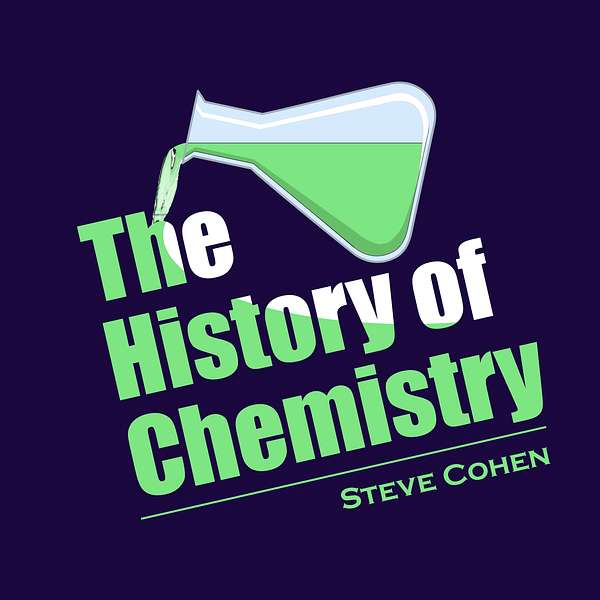
The History of Chemistry
Chemistry is everywhere, and involves everything. But how did chemistry get to be what it is? I'm Steve Cohen, a chemist and writer, bringing you The History of Chemistry. This podcast explores the development of chemistry from prehistoric times to the present, including the people and societies who made chemistry what it is today. The History of Chemistry is for you, whether you hated chemistry in high school, or got a PhD in inorganic chemistry. We'll explore how chemistry affected art, music, language, politics and vice-versa. Whether it's ancient Greek philosophers, medieval alchemists, or modern laboratory apparatus, it's all here. Don't forget to support my series at https://www.patreon.com/thehistoryofchemistry !
The History of Chemistry
158: It's a Gas
•
Steve Cohen
•
Episode 158
Use Left/Right to seek, Home/End to jump to start or end. Hold shift to jump forward or backward.
We hear about the history of hydrogen gas as a fuel, starting in the early 1800s with François Isaac de Rivaz. We continue through the 19th and 20th centuries, with dual-burning vehicles, airplanes, and fuel-cells. We talk of advantages and disadvantages of such engines, and the ecological spectrum of hydrogen gas.
- Support my podcast at https://www.patreon.com/thehistoryofchemistry
- Tell me how your life relates to chemistry! E-mail me at steve@historyofchem.com
- Get my book, O Mg! How Chemistry Came to Be, from World Scientific Publishing, https://www.worldscientific.com/worldscibooks/10.1142/12670#t=aboutBook